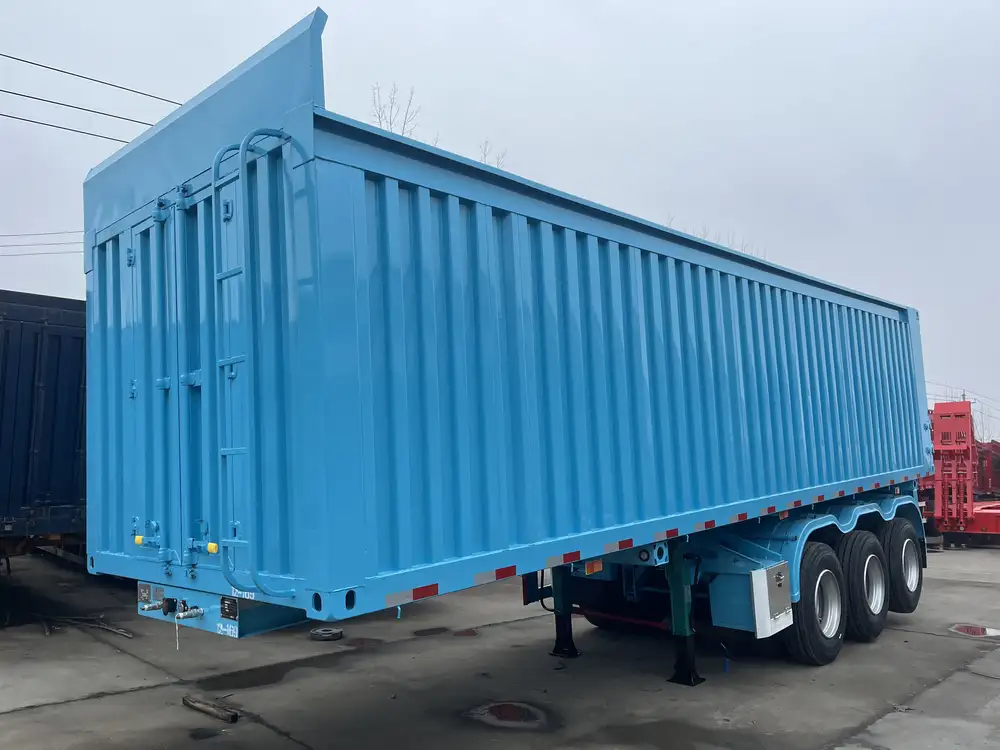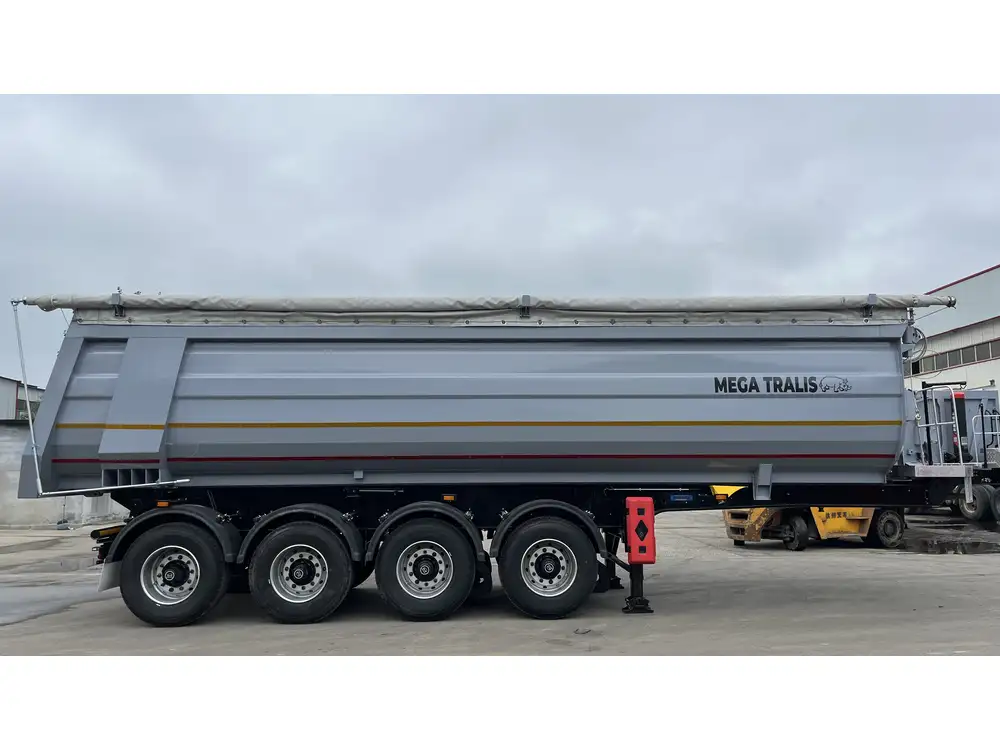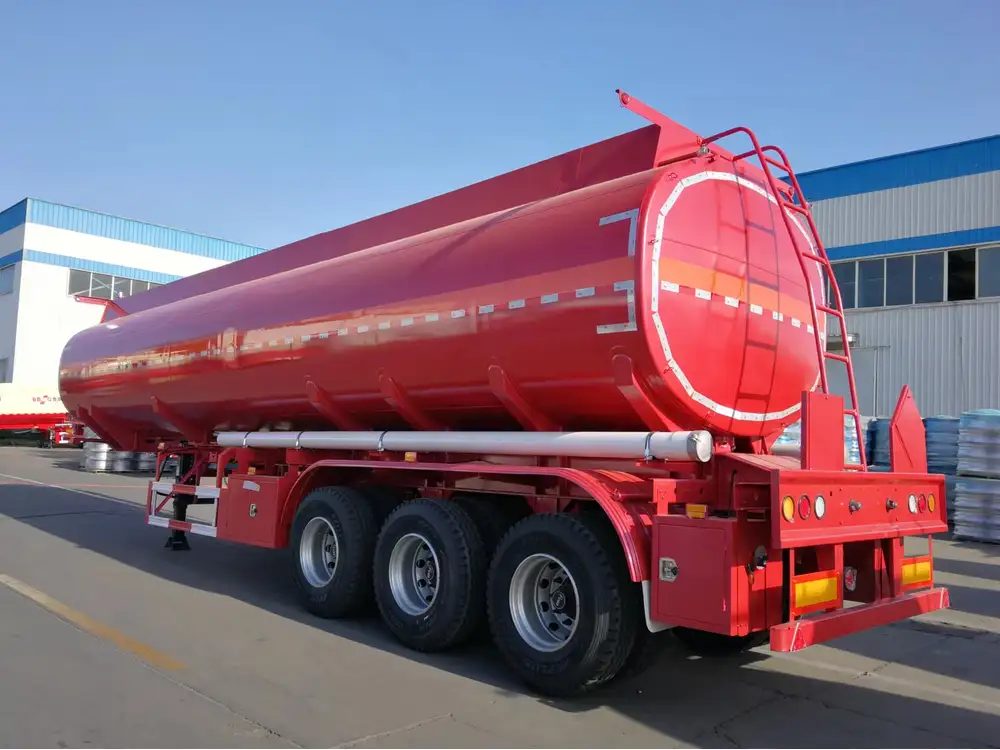When exploring the world of heavy-duty machinery, one might stumble upon various classifications and terminologies that often lead to confusion. A frequent inquiry revolves around dump trailers—specifically, whether they qualify as equipment. This article delves into the specifications, functionalities, and classifications of dump trailers, answering pivotal questions that business owners, contractors, and logistics professionals may encounter.
Defining Dump Trailers
What Is a Dump Trailer?
A dump trailer is a specialized vehicle designed for transporting bulk materials and unloading them through a tipping mechanism. Typically equipped with a hydraulic lift, these trailers can efficiently discharge loads such as soil, gravel, sand, and debris. The engineering behind dump trailers emphasizes durability, strength, and adaptability.

Key Components of Dump Trailers
In order to grasp their classification as equipment, it’s crucial to understand the essential components that make up a dump trailer:
| Component | Function |
|---|---|
| Frame | Provides structural integrity and supports the weight of heavy loads. |
| Axles | Essential for wheel alignment and load distribution. Typically, dump trailers have tandem axles for stability. |
| Hydraulic System | Enables the tipping action, allowing materials to be easily unloaded. |
| Body | The enclosed or flatbed area where materials are loaded. Varieties include steel, aluminum, and composite materials. |
| Tarpaulin Cover | Protects loads from weather conditions and ensures safety during transport. |
Various Types of Dump Trailers
Dump trailers come in several configurations, each serving unique purposes. Here’s a breakdown of common types:
Single Axle Dump Trailers: Best suited for lighter loads and smaller jobs, offering great maneuverability.
Tandem Axle Dump Trailers: Designed for heavy-duty use, these can carry larger loads with increased stability.
Gooseneck Dump Trailers: These feature an extended hitch for better weight distribution and handling on the road, often preferred for larger hauling tasks.
Electric and hydraulic dump trailers: These utilize advanced hydraulic systems for seamless unloading, ensuring efficiency in operations.
Are Dump Trailers Equipment?

Classification Criteria
The classification of a dump trailer as ‘equipment’ often hinges on definitions utilized in industries such as construction and logistics. Equipment typically refers to tools or machinery that enhance operational capabilities. Here’s a comparative breakdown:
| Criteria | Dump Trailer | General Equipment |
|---|---|---|
| Functionality | Transfer heavy loads | Improve operational efficiency |
| Durability | Built for heavy-duty use | Varies, but often robust |
| Mobility | Transportable | Can be portable or stationary |
| Operational Cost | Incur operational costs related to trucking | Costs related to purchase, maintenance, and operation |
Practical Applications
Dump trailers serve a myriad of purposes across various industries. Here’s a look into the functions they perform:
- Construction: Essential for transporting materials like concrete, wood, and debris, streamlining operations on job sites.
- Landscaping: Vital for moving soil, mulch, and plants, allowing for efficiency in landscaping projects.
- Agriculture: Used for hauling crops or livestock equipment, aiding farmers in maximizing productivity.
- Waste Management: Assists in transporting collected waste materials to processing sites or landfills.
As such, dump trailers undoubtedly possess the capabilities associated with industrial equipment. Therefore, they can be classified as such in specific contexts.
Regulatory Perspective
From a regulatory standpoint, classes of equipment such as dump trailers often conform to vehicle classification laws pertaining to weight, load capacity, and safety features. Examining local transportation laws can provide insights into the categorization of dump trailers within a given jurisdiction.

Benefits of Using Dump Trailers
As versatile tools, dump trailers offer several advantages:
Enhanced Efficiency
Dump trailers enable quicker loading and unloading processes compared to manual methods. Their hydraulic lift systems allow for precise and swift material discharge, saving labor time and reducing fatigue.
Cost-Effectiveness
Utilizing dump trailers can significantly lower transportation costs, especially for businesses that routinely move heavy materials. The durability and longevity of high-quality dump trailers also minimize maintenance and replacement expenses.

Increased Payload Capacity
Many dump trailers are engineered to haul substantial weight, increasing operational efficiency. This capability makes them invaluable for industries demanding high payloads, such as construction and agriculture.
Versatility in Operations
Dump trailers adapt to various functions and can handle a wide range of materials. This adaptability ensures that businesses can utilize them across multiple projects, negating the need for diverse transportation vehicles.
Common Concerns About Dump Trailers

Maintenance Considerations
While dump trailers are robust, they require regular maintenance to ensure longevity and safe operational efficiency. Here are essential tips for maintaining a dump trailer:
- Regular Inspection: Conduct frequent checks on hydraulic systems, axles, and the overall frame.
- Lubrication: Ensure all moving parts are well-lubricated to prevent wear.
- Brake Checks: Regularly assess the braking system for optimal safety.
- Tire Maintenance: Routinely inspect tire pressure and tread to avoid mishaps during transportation.
Safety Protocols
Engaging with dump trailers comes with inherent risks. Understanding and implementing safety protocols is mandatory:
- Load Distribution: Ensure equal weight distribution to prevent tipping or roll-over.
- Use of Tarpaulins: Secure loads with tarpaulins to avoid spillage on roads.
- Training: Operators should receive training on safe loading/unloading procedures and trailer handling.
Environmental Impacts
Dump trailers can impact the environment if not managed properly. Reducing emissions during transportation and adhering to regulations regarding waste disposal can enhance environmental responsibility.

Conclusion: The Role of Dump Trailers in Modern Industries
In summary, dump trailers represent a significant aspect of modern logistics and construction sectors. Their classification as equipment is valid given their operational functions, designs, and applications across multiple industries. By streamlining material handling, enhancing efficiency, and providing cost-effectiveness, dump trailers are indeed essential tools.
Investing in high-quality dump trailers can provide businesses with the necessary means to improve productivity and operational efficiency. As the market continues to evolve, it is vital for stakeholders to stay informed about the evolving technologies, regulations, and best practices surrounding this essential equipment.
For organizations looking to optimize their logistics and operational strategies, understanding the capabilities and classifications of dump trailers is indispensable—ensuring they can navigate the complexities of modern industrial demands effectively.



